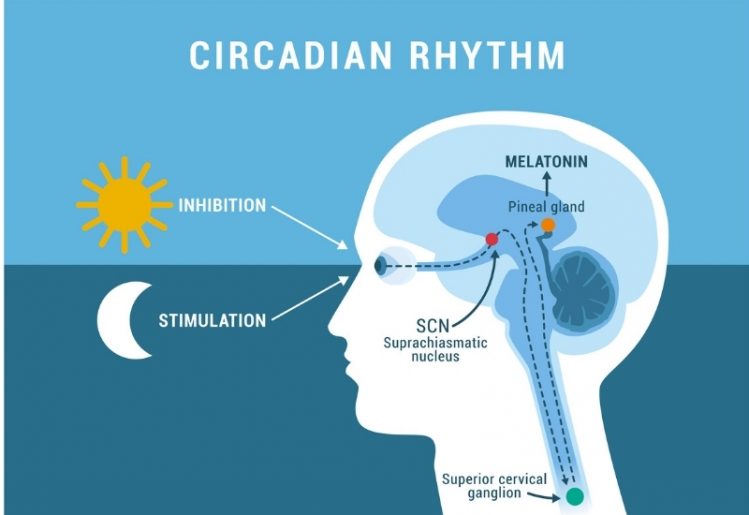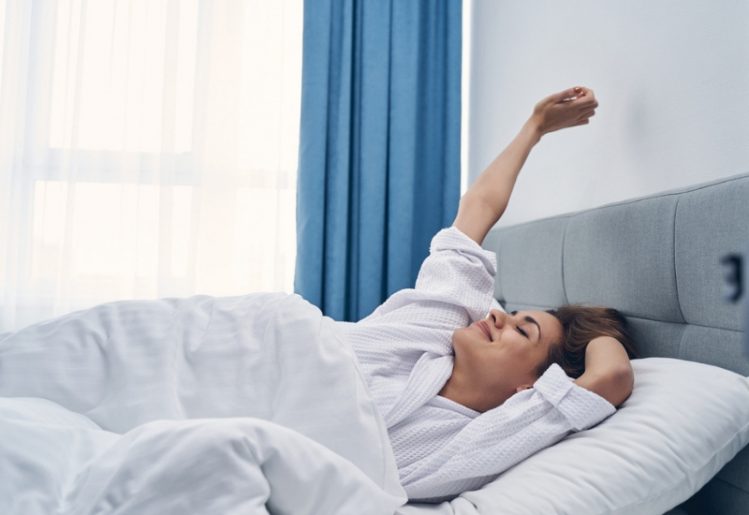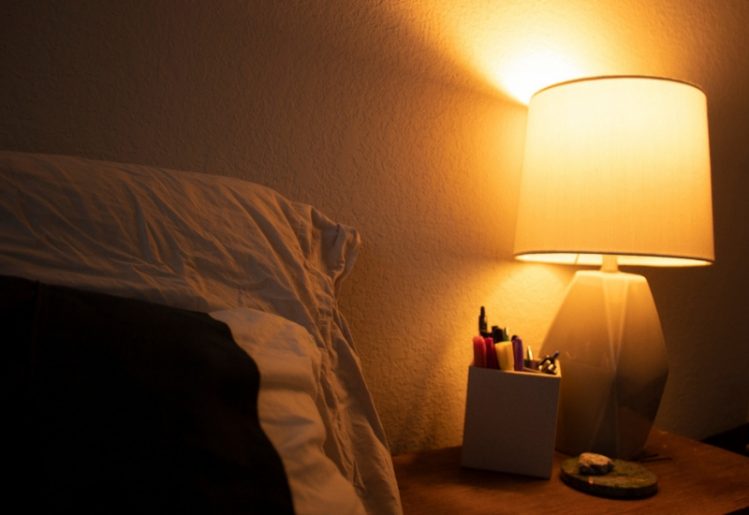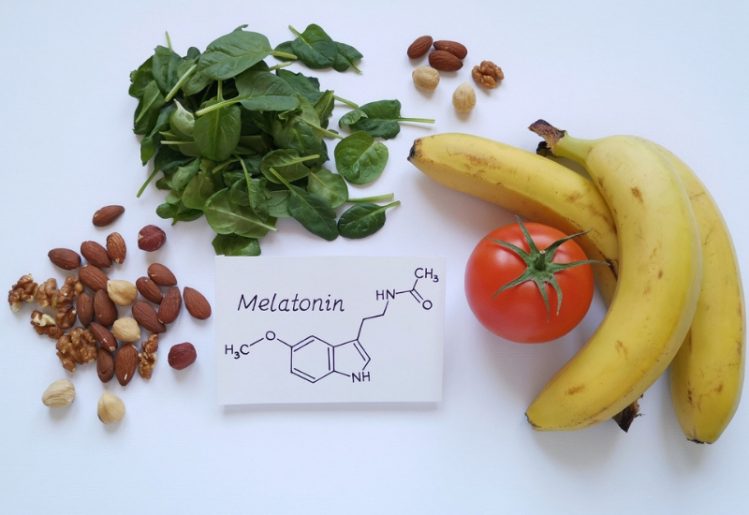Melatonin boasts remarkable antioxidant properties, making it a powerful tool in fighting against premature aging and the onset of disease. In short, there is no limit to the ways that melatonin can boost your overall health and well-being. Here is what you need to know about this naturally occurring hormone and how melatonin can help protect against free radicals in the body while promoting long-term health.
Understanding Free Radicals
 In its most basic definition, melatonin is a hormone produced by the body’s pineal gland. The functions of melatonin are many. While most people understand that melatonin is the driving force behind the body’s sleep and wake cycles, its importance goes far beyond the regulation of sleep. While the body naturally produces melatonin, it is also possible to take a melatonin supplement to boost its natural functions.
In its most basic definition, melatonin is a hormone produced by the body’s pineal gland. The functions of melatonin are many. While most people understand that melatonin is the driving force behind the body’s sleep and wake cycles, its importance goes far beyond the regulation of sleep. While the body naturally produces melatonin, it is also possible to take a melatonin supplement to boost its natural functions.
In order to understand how melatonin protects against free radicals, you need to know what free radicals are. Also known as reactive oxygen species (ROS), free radicals are compounds that form as a result of oxidation. These unstable chemical molecules are triggered as a reaction to pressures from the surrounding environment. Free radicals may occur as a result of the food that you eat, medications, irritants in drinking water and even the quality of the air you breathe. While it is normal and not unhealthy to see some free radicals in the body, too many of these compounds can accelerate the aging process. In turn, this premature aging will inevitably lead to a greater risk of disease and illness.
Free Radicals, Premature Aging and Disease
Many scientists promote the free radical theory of aging. This widely accepted theory explains how free radicals damage cells, leading to premature aging. During the younger years, the body employs a protective system known as the superoxide dismutase (SOD). This defense system keeps free radicals from inflicting too much damage on the body’s cells. However, as we age, these free radicals are able to infiltrate cells and kill them.
The presence of excessive free radicals has been blamed for numerous diseases and health conditions. Some of these include cancer, heart disease, arthritis, obesity, asthma and dementia. This list is just the tip of the iceberg when it comes to the damage that free radicals can cause.
How Melatonin Protects Against Free Radicals
In recent years, medical researchers have discovered that melatonin can protect against the infiltration of free radicals. This is due in large part to the powerful antioxidant properties of melatonin. Not only does melatonin have antioxidant properties of its own, but it also stimulates the body’s antioxidant production.
For example, the presence of melatonin and its antioxidant effects guards skeletal muscles, mitigates cellular damage, boosts total antioxidant capacity and shields the body from the overall dangers of oxidative stress By neutralizing free radicals in the body, antioxidants like melatonin can also boost overall health. This benefit makes melatonin a vital tool in your arsenal for fighting premature aging and disease.
How to Promote Optimal Melatonin Levels in the Body
The encouraging news is that there are a number of steps that you can take today to promote optimal melatonin levels in the body.
Avoid Looking at Blue Light in the Evening
One of the worst habits to come out of the digital revolution is the increase in the use of phones, tablets and computers at all hours of the day. The blue light emitted from these devices can disrupt the production of melatonin, making it important to avoid these devices for at least two hours prior to bedtime.
Seek Sun in the Morning
 In order to boost production of melatonin in the evening, you need to increase the levels of serotonin in the morning. You can support serotonin production by exposing your body to sunlight in the morning.
In order to boost production of melatonin in the evening, you need to increase the levels of serotonin in the morning. You can support serotonin production by exposing your body to sunlight in the morning.
Eat Foods Rich in Melatonin
Melatonin can also be found in many of the foods that we eat. Eating these melatonin-rich foods a few hours before going to sleep can help to support healthy sleep cycles. Good foods to add to your diet include olives, corn, asparagus, cucumbers, pomegranate, flax seed, walnuts and rolled oats.
Go the Supplement Route
Many people swear by the use of a melatonin supplement for optimal sleep and health. These non-addictive supplements can provide a host of health benefits while also helping you to fall asleep faster at night, ensuring that you get a good night’s rest.
Being diligent about supporting melatonin function in the body can have far-reaching effects on a number of profound health functions. There is simply no reason not to learn more about how supporting healthy melatonin levels can help you to live a longer and healthier life.
 While
While  Instead of using your electronic device, create a relaxation ritual that you can do every night. This will help you train your brain to recognize the signs that it’s time for rest, while also helping you wind down. This can involve taking a warm bath, reading a good book or meditating to soft music. Any practice that you find relaxing and enjoyable can be included in your bedtime ritual.
Instead of using your electronic device, create a relaxation ritual that you can do every night. This will help you train your brain to recognize the signs that it’s time for rest, while also helping you wind down. This can involve taking a warm bath, reading a good book or meditating to soft music. Any practice that you find relaxing and enjoyable can be included in your bedtime ritual. While setting the stage for slumber is one role of melatonin, it does much more than just help people fall asleep. Even after you fall asleep, melatonin acts as a powerful antioxidant, assisting the body in maintaining health and repairing damage throughout the night.
While setting the stage for slumber is one role of melatonin, it does much more than just help people fall asleep. Even after you fall asleep, melatonin acts as a powerful antioxidant, assisting the body in maintaining health and repairing damage throughout the night. If you spend the majority of your day indoors, you may be inhibiting the way your circadian rhythm functions. By spending some time outside, where you can benefit from direct sunlight exposure, you’ll be helping your brain adjust to the 24 -hour cycle. Getting that sunlight earlier in the day will help kick start the production of melatonin earlier in the evening.
If you spend the majority of your day indoors, you may be inhibiting the way your circadian rhythm functions. By spending some time outside, where you can benefit from direct sunlight exposure, you’ll be helping your brain adjust to the 24 -hour cycle. Getting that sunlight earlier in the day will help kick start the production of melatonin earlier in the evening. Most people know that they’re more likely to get sick when they’re not well rested, but research into this area has uncovered
Most people know that they’re more likely to get sick when they’re not well rested, but research into this area has uncovered  Your environment is just as important as your bedding when it comes to creating a sleep-friendly atmosphere. If you notice excess lighting spilling into your bedroom from a window or from the corridor, it may be helpful to wear a sleep mask. Similarly, wearing earplugs, or noise-canceling earmuffs, to bed can keep noises from waking you in the night.
Your environment is just as important as your bedding when it comes to creating a sleep-friendly atmosphere. If you notice excess lighting spilling into your bedroom from a window or from the corridor, it may be helpful to wear a sleep mask. Similarly, wearing earplugs, or noise-canceling earmuffs, to bed can keep noises from waking you in the night. Our brain and body function on a 24-hour biological clock, known as the circadian rhythm, which regulates our sleeping and waking hours. The circadian rhythm relies on the light of the day and the darkness of night as cues to determine when we should be awake and when we should be asleep.
Our brain and body function on a 24-hour biological clock, known as the circadian rhythm, which regulates our sleeping and waking hours. The circadian rhythm relies on the light of the day and the darkness of night as cues to determine when we should be awake and when we should be asleep. Regardless of the hours you work, you should develop a sleep schedule and stick to it all week long. This will help you train your circadian rhythm to adjust to your lifestyle, so melatonin production will coincide with your sleeping hours.
Regardless of the hours you work, you should develop a sleep schedule and stick to it all week long. This will help you train your circadian rhythm to adjust to your lifestyle, so melatonin production will coincide with your sleeping hours.
 Research into the use of
Research into the use of